Financial crisis, refugee crisis, Corona crisis, climate crisis. Without falling into alarmism here – the chronicle of the still young 21st century is a wake-up call. The social, economic and ecological dislocations that herald the approaching “limits to growth” are becoming ever more apparent. It is quite clear what our future will look like if we carry on as before. Admittedly, this does not seem tempting.
In 2021, Ars Electronica is therefore calling for a „New Digital Deal“. Not a 1,000-page agreement negotiated by “experts” behind closed doors. No. What we’re talking about is a completely new way of dealing with our problems that presupposes two things: Room for initiative, which we urgently demand, and the ability to act, which we just as urgently need to acquire. The time for playing around is over once and for all. It’s time to put our money where our mouth is; it’s time for the “New Digital Deal”…
Monday, August 30 – A New Digital Deal or what are we waiting for?
They are all between 16 and 24 years old and live in more than 50 different countries. They are burning for change and want to help make our future better than the present. That’s why they didn’t hesitate to apply for the first “Festival University” offered this year by Ars Electronica and Johannes Kepler University (JKU) thanks to the support of the Austrian Federal Ministry of Education, Science and Research and the province of Upper Austria. 100 applicants were accepted and will participate from August 30 to September 19 in an experiment that rehearses the interplay of art, technology, science and society in the 21st century. On the one hand, it will be about what it takes to get going in terms of the future here and now, and on the other, what learning should look like in the 21st century. The students will be accompanied by renowned mentors from the international network of Ars Electronica and JKU, and actively supported by artists and activists from Linz and Upper Austria. The outcome of this “Festival-University” will then be presented where the transformation of our world must begin and become reality – in the midst of and together with as broad a public as possible.
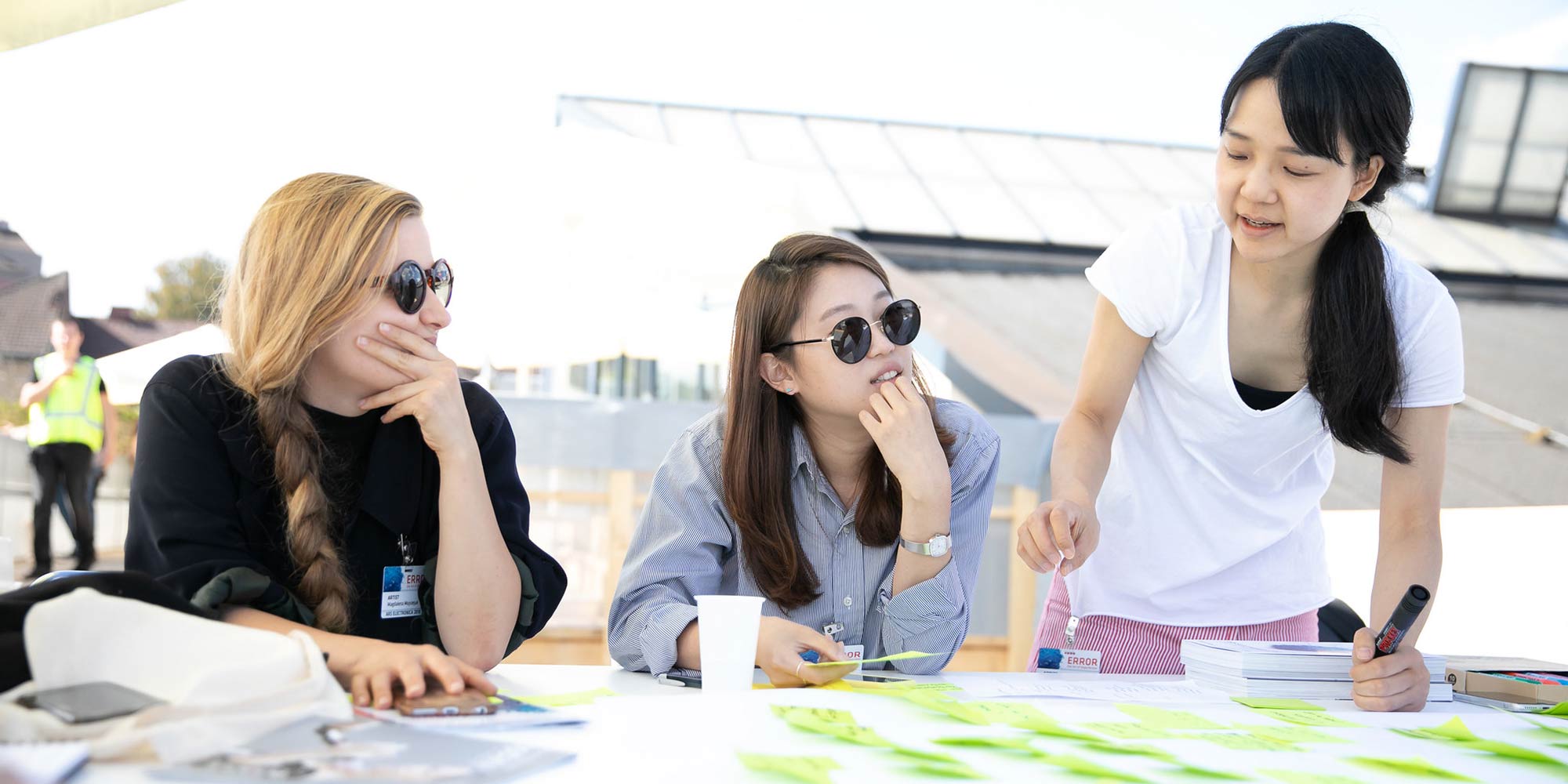
Tuesday, 7.9.2021 – Straight to the point also at the Pre-Opening
On the eve of the official festival kickoff, this year’s Ars Electronica goes into medias res. The program includes a pre-opening walk that will take place in the OK in the OÖ Kulturquartier – a location of the OÖ Landes-Kultur GmbH – and will use the example of award-winning works of art to show how, for example, the civil society of the 21st century is using new technologies to document forms of violence that are as subtle as they are deadly and to call their authors to account (Cloud Studies / Forensic Architecture). Or how a unique collection of edible earth samples can become the starting point for reflecting on our complex and partly lost relationship with nature (The Museum of Edible Earth / masharu).
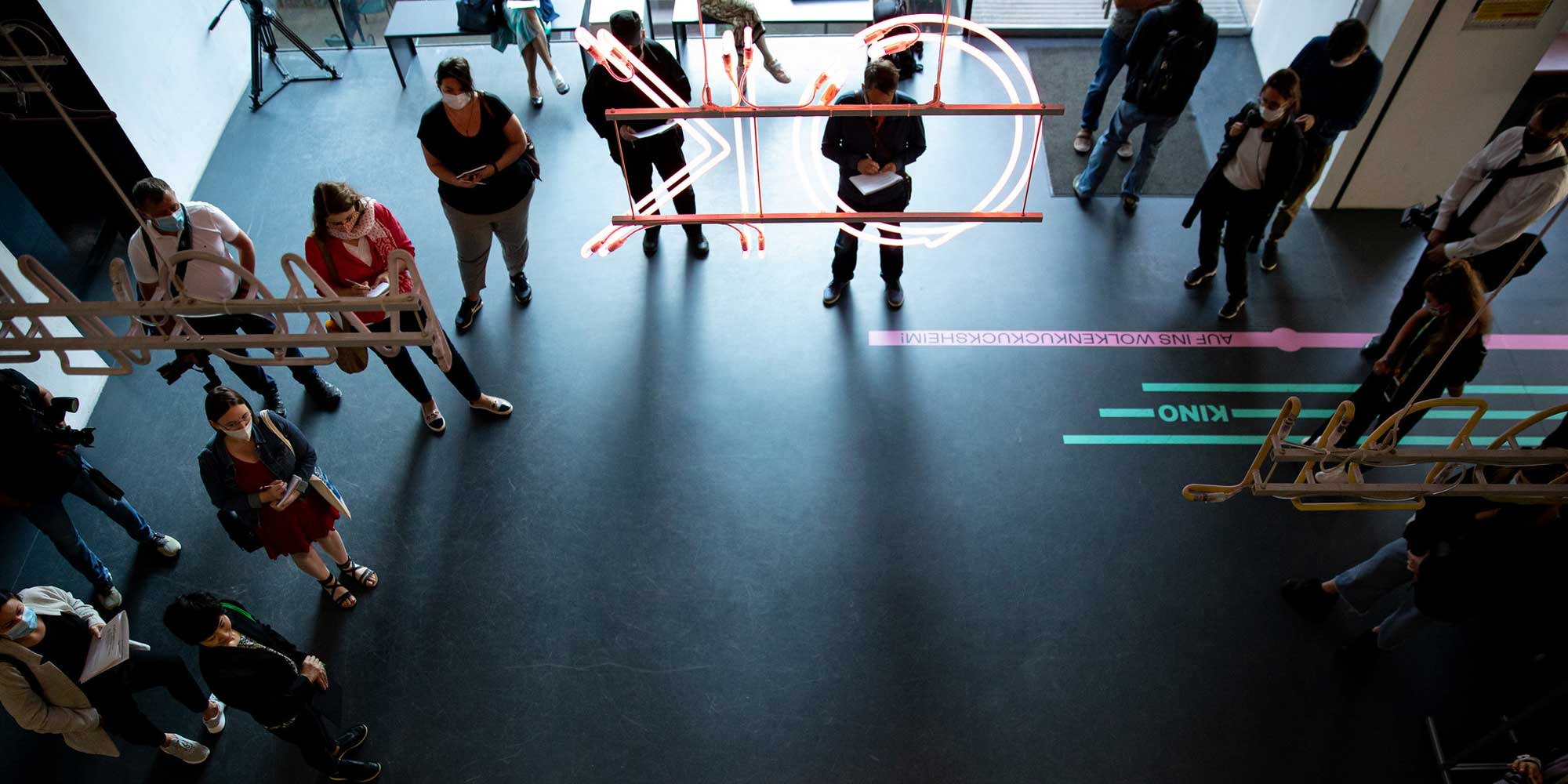
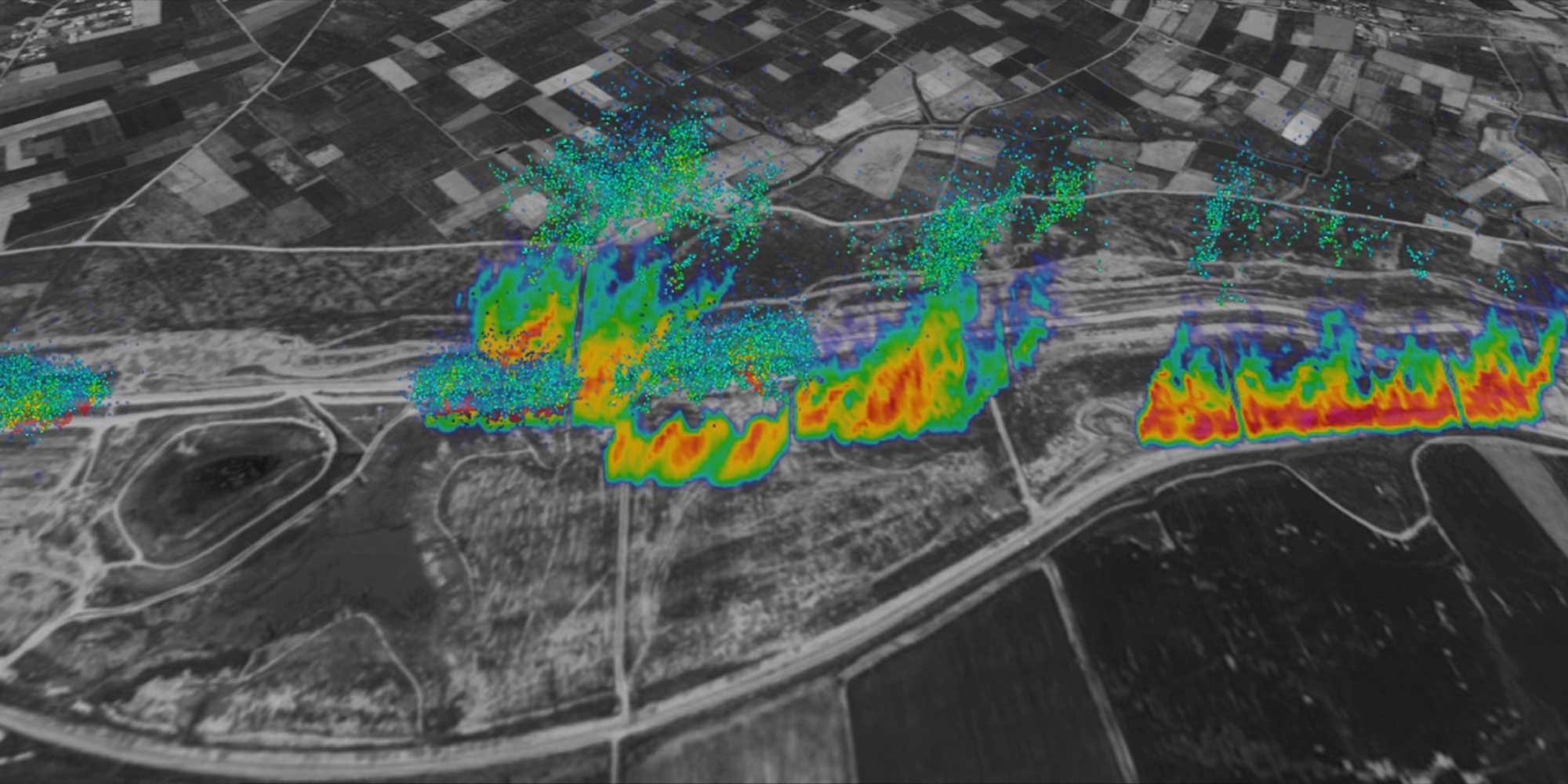

The show continues at the University of Art in Linz on the main square, where the exhibition “Loops of Wisdom” explores the question of how we generate our knowledge about the world and why – in view of the state of this world – we develop very little wisdom despite all this knowledge. A guide to action is proposed to help us finally make more of our knowledge and get into action.
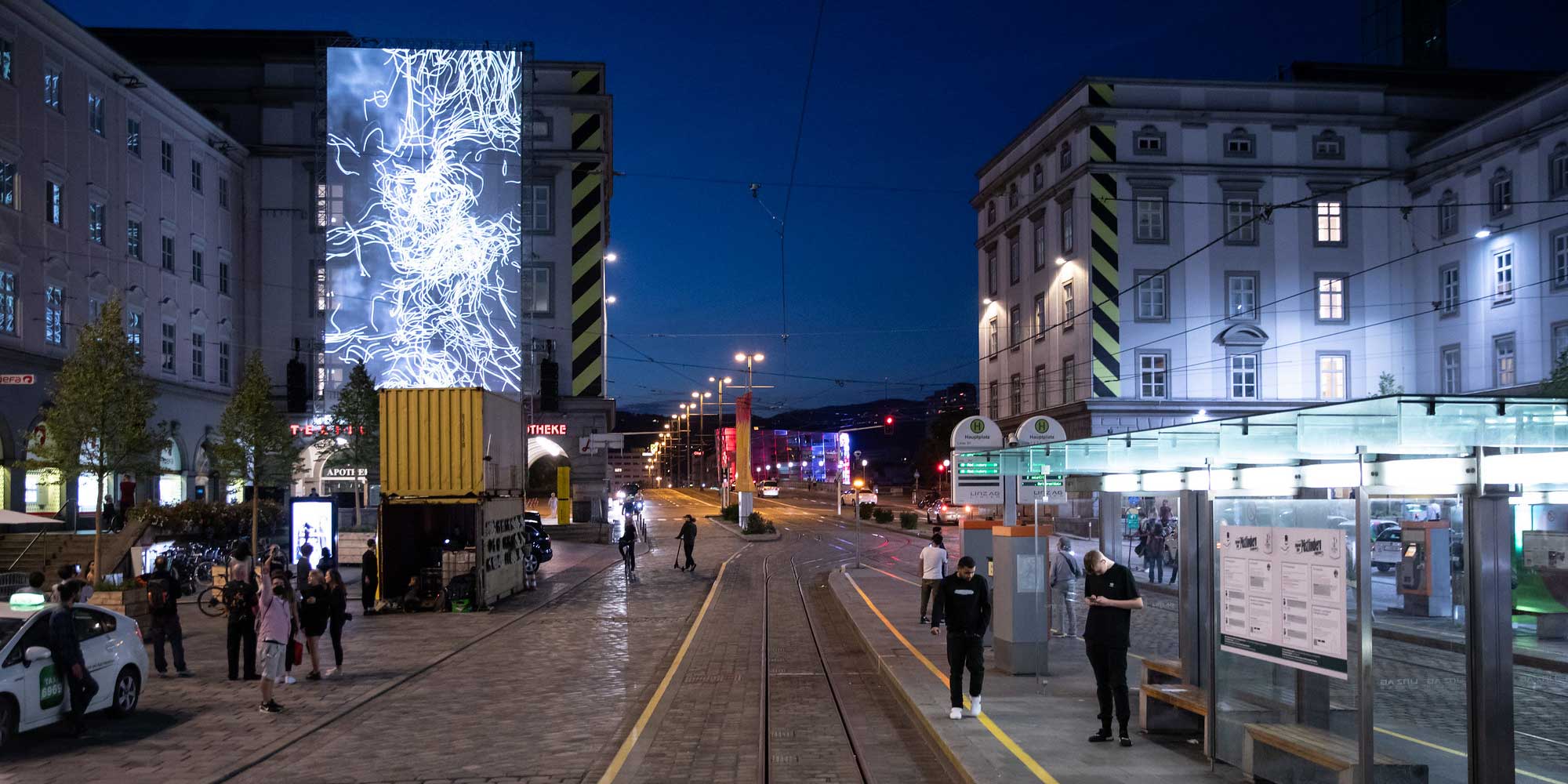
The last stop of the evening is the Ars Electronica Center whose show “There is no Planet B” makes it clear that the species Homo Sapiens will not be able to cheat its way through. Artistic projects make us aware that we don’t lack solutions, but rather the will and the consistency to use them and to develop ourselves as individuals and as a society in such a way that the generations after us will still find a future worth living on this planet. Freely adapted from Carl Sagan:„There is nowhere else, at least in the near future, to which our species could migrate. Visit, yes. Settle, not yet. Like it or not, for the moment the Earth is where we make our stand.“
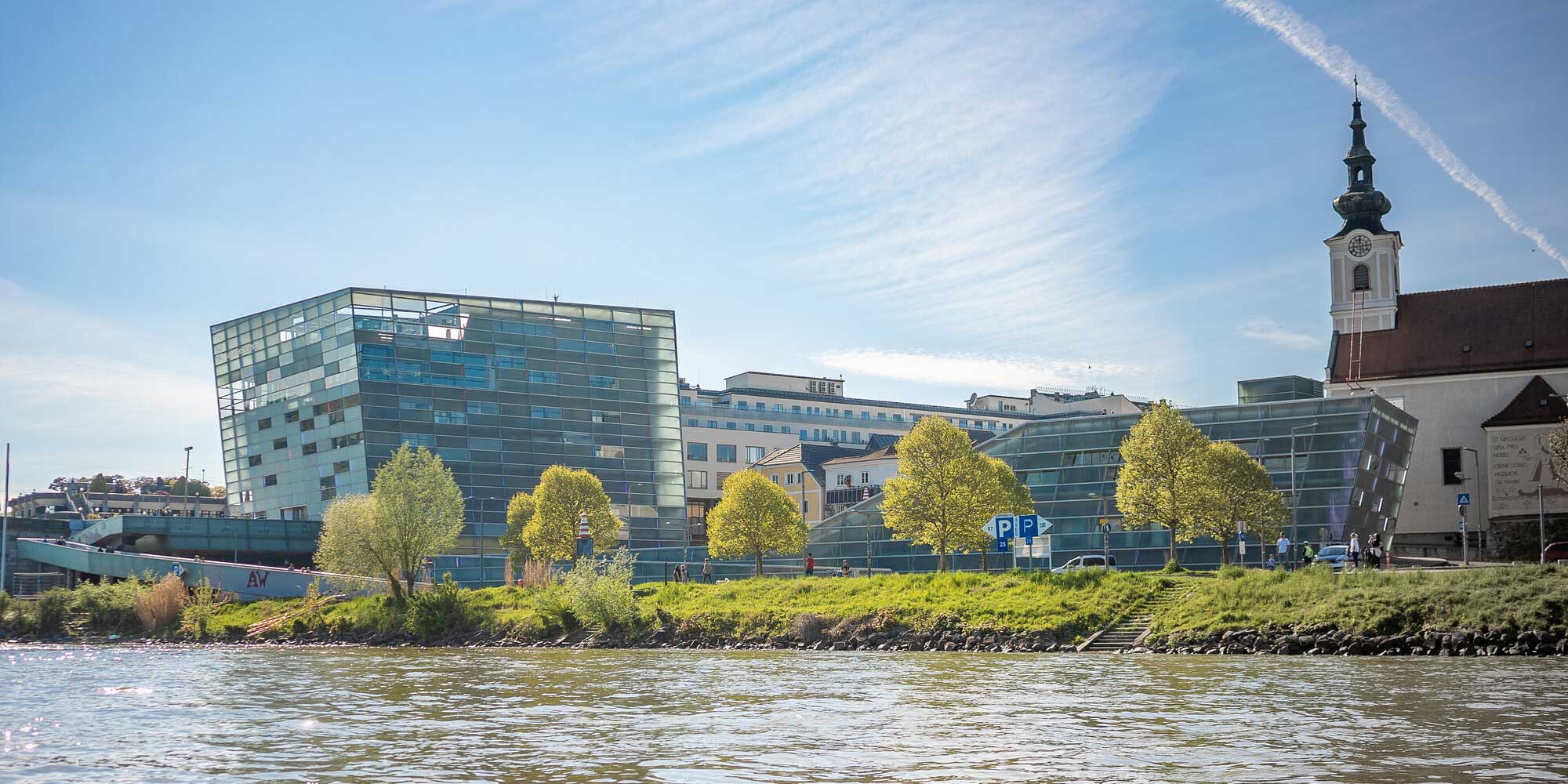
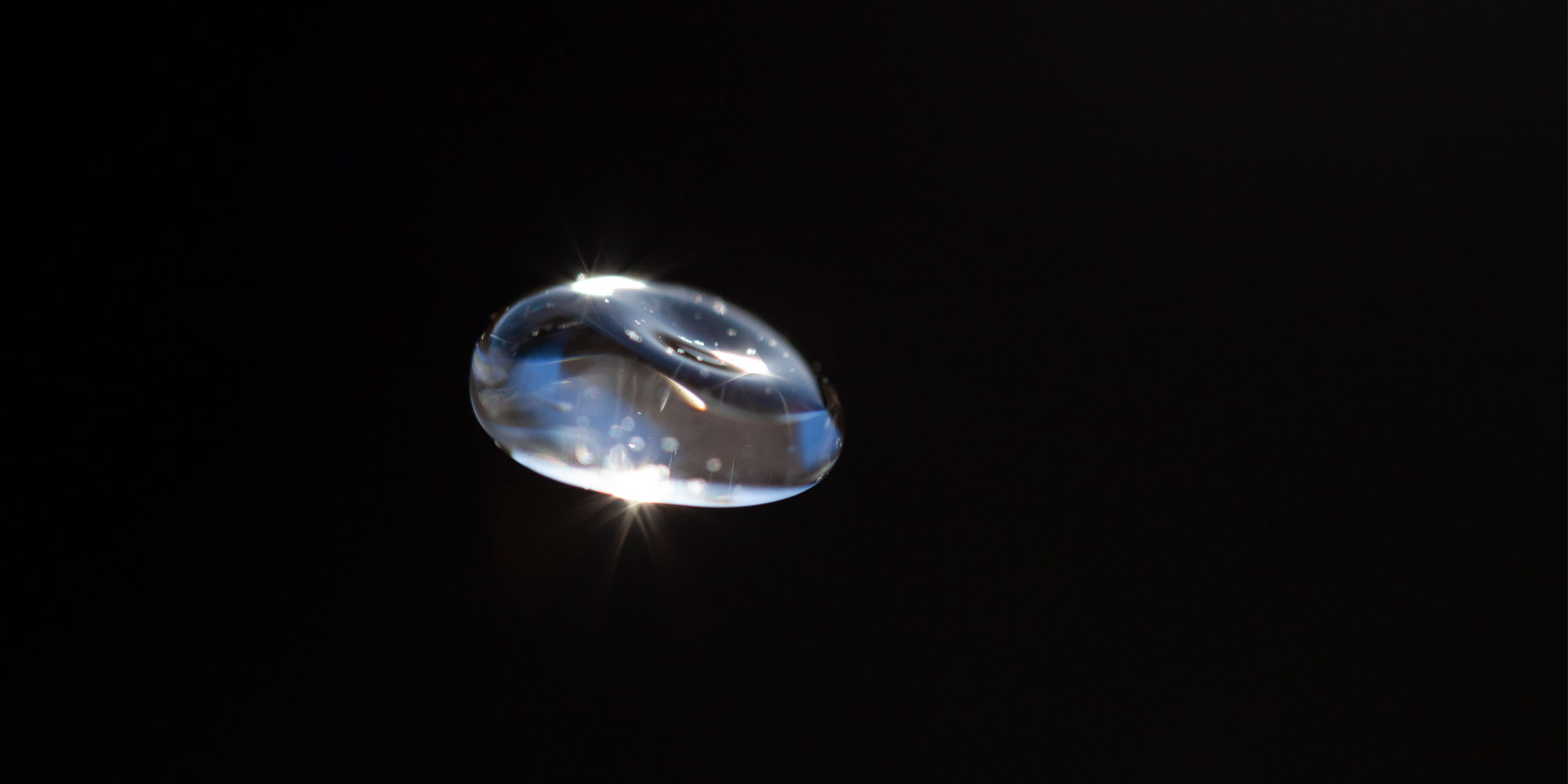
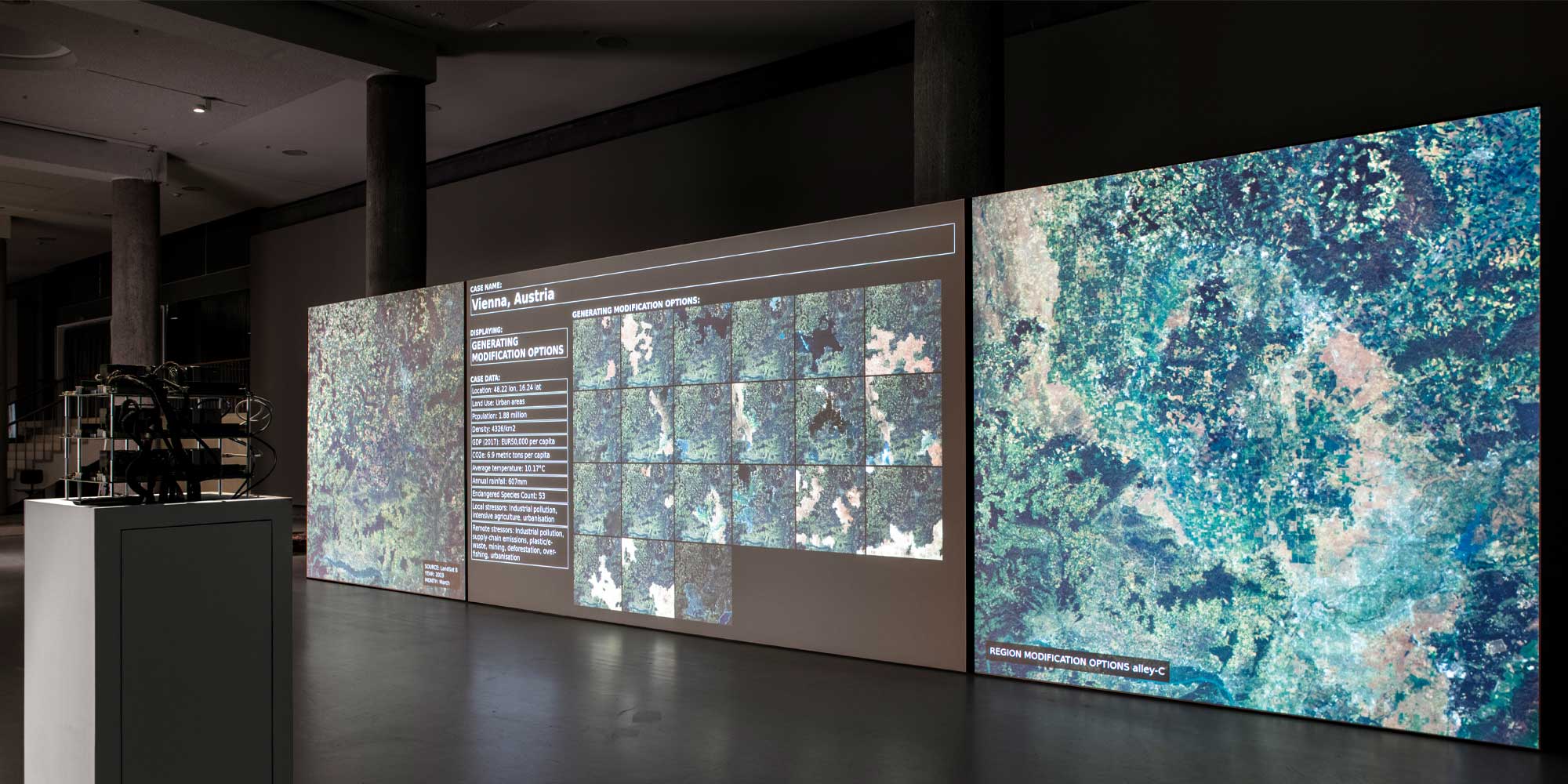
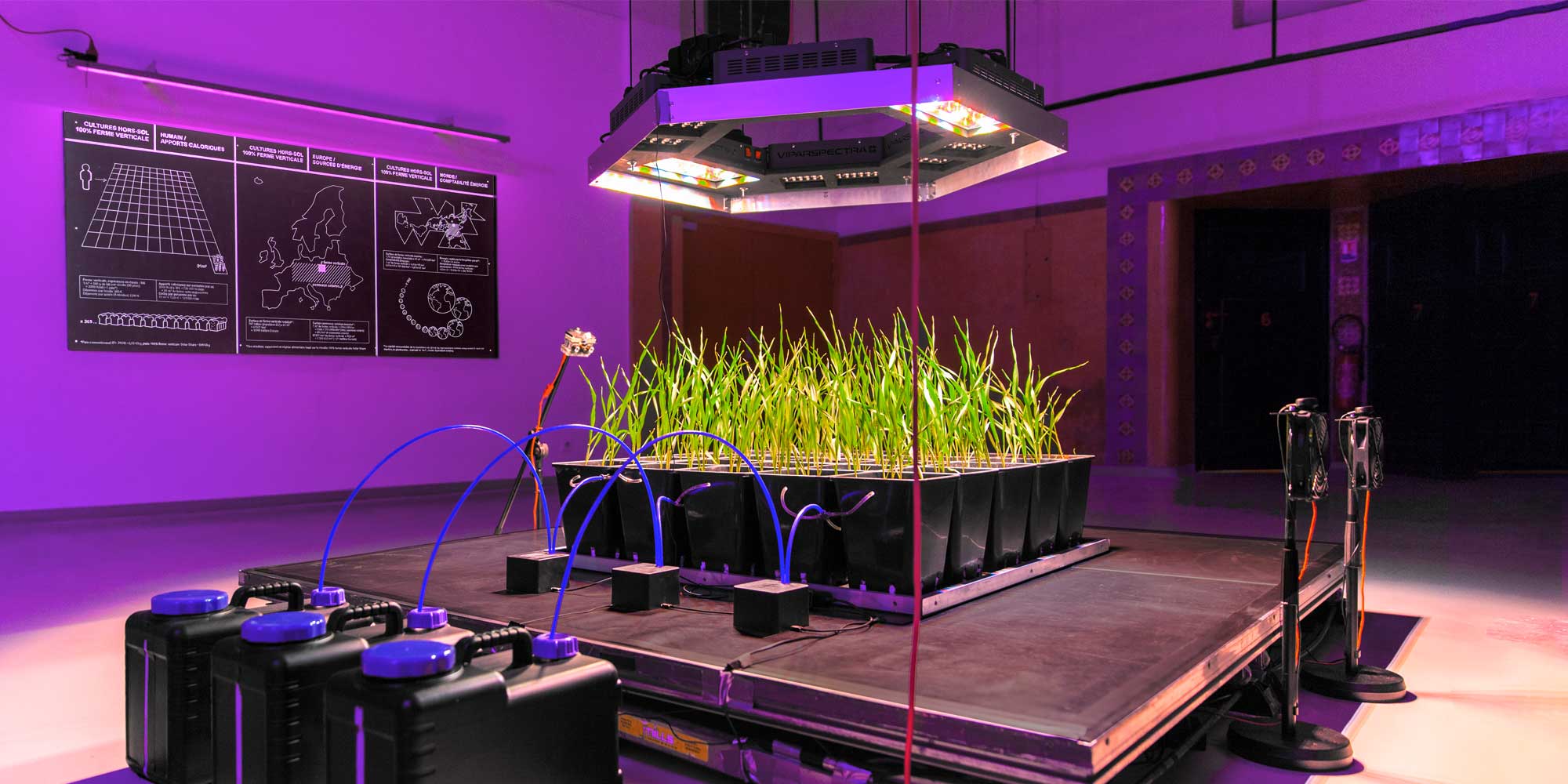
Wednesday, 8.9.2021 – The festival starts with an Education Day
It’s Wednesday after all! Ars Electronica 2021 officially begins today, and it kicks off with an Education Day. For good reason: wanting to change something (or in our case, having to change something) is one thing, being able to change something is quite another. The question is how we can acquire the skills we need to successfully meet the challenges of our time. The order of the day can only be: We need an (extra-)school education whose structures, content and didactics make contemporary learning possible and prepare young people in the best possible way for a (working) life in the 21st century.
This question is the starting point of the two-day “Symposium Universitas”, with which the Johannes Kepler University, the University of Applied Arts Vienna and the Danube University Krems start this year’s festival. It is about how digital technologies change university teaching, which new skills have to be taught and which new methods have to be implemented, how performance and scientific output can be (more) meaningfully “measured” and how transdisciplinarity should not only be attempted, but lived.
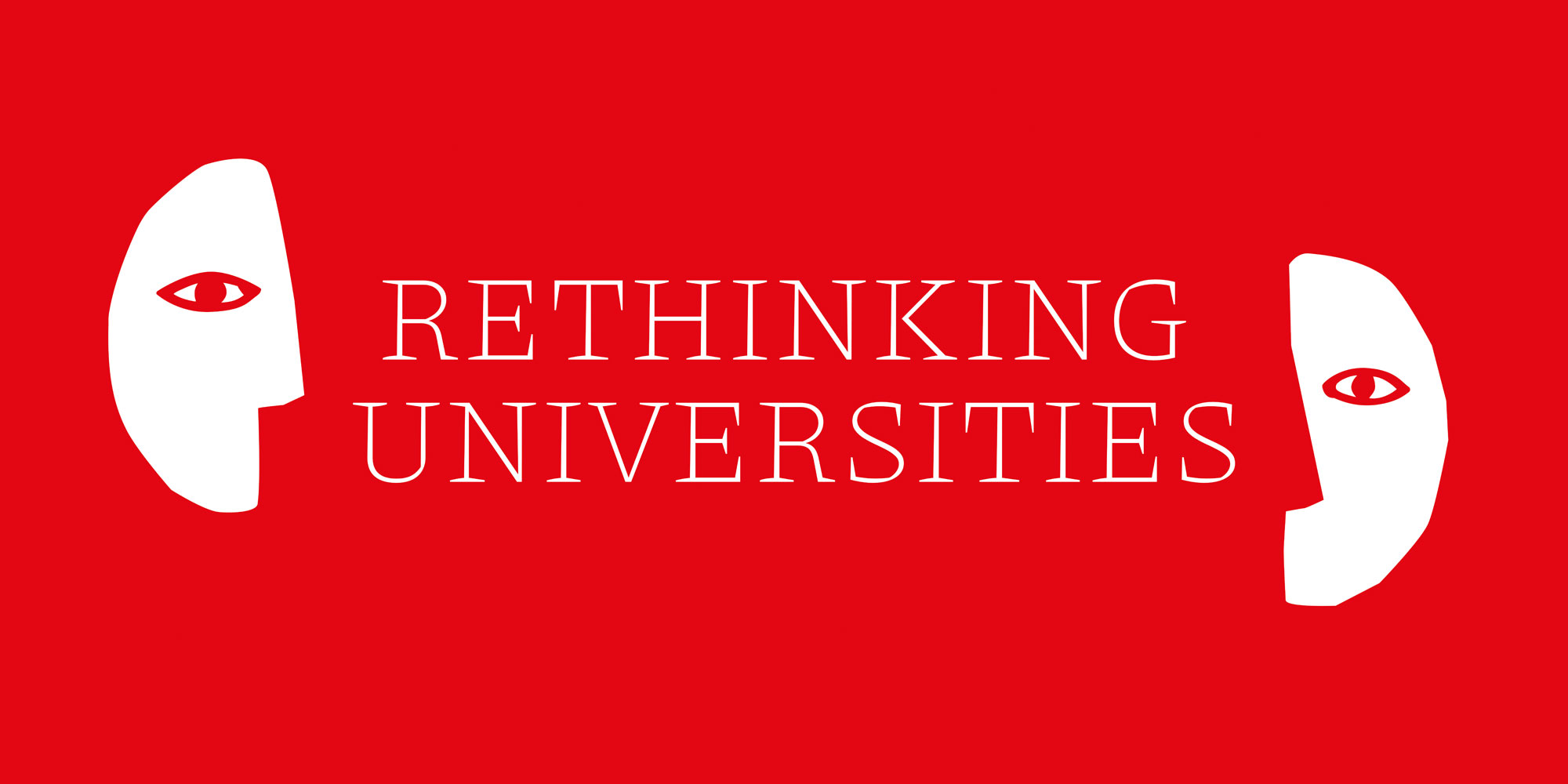
Keyword collaboration; STEAM Inc‘s hybrid talks and workshops are also about promoting cross-disciplinary collaboration – not only, but especially at universities. Science, Technology, Engineering, Artistic Innovation and Mathematics form a kind of toolset for problem solving that always begins with the same two questions: “What problem am I trying to solve?” and “Who should I collaborate with to find an answer?” The STEAM Inc initiative aims to establish this cross-disciplinary approach at European universities and implement it in research and teaching. In addition, the aim is to evaluate the impact of STEAM.
The fact that digital gadgets, algorithms and the Internet are increasingly shaping our lives is just as clear as the unfortunate fact that women are still heavily underrepresented in the development of all these technologies. As part of her initiative “Initiative Digitalisierung Chancengerecht” (IDC), Doris Schmidauer invites experts from education, technology, business, culture and media to a panel discussion and wants to know what are the causes of the digital divide between the sexes and what concrete measures can we take to overcome this gap once and for all?
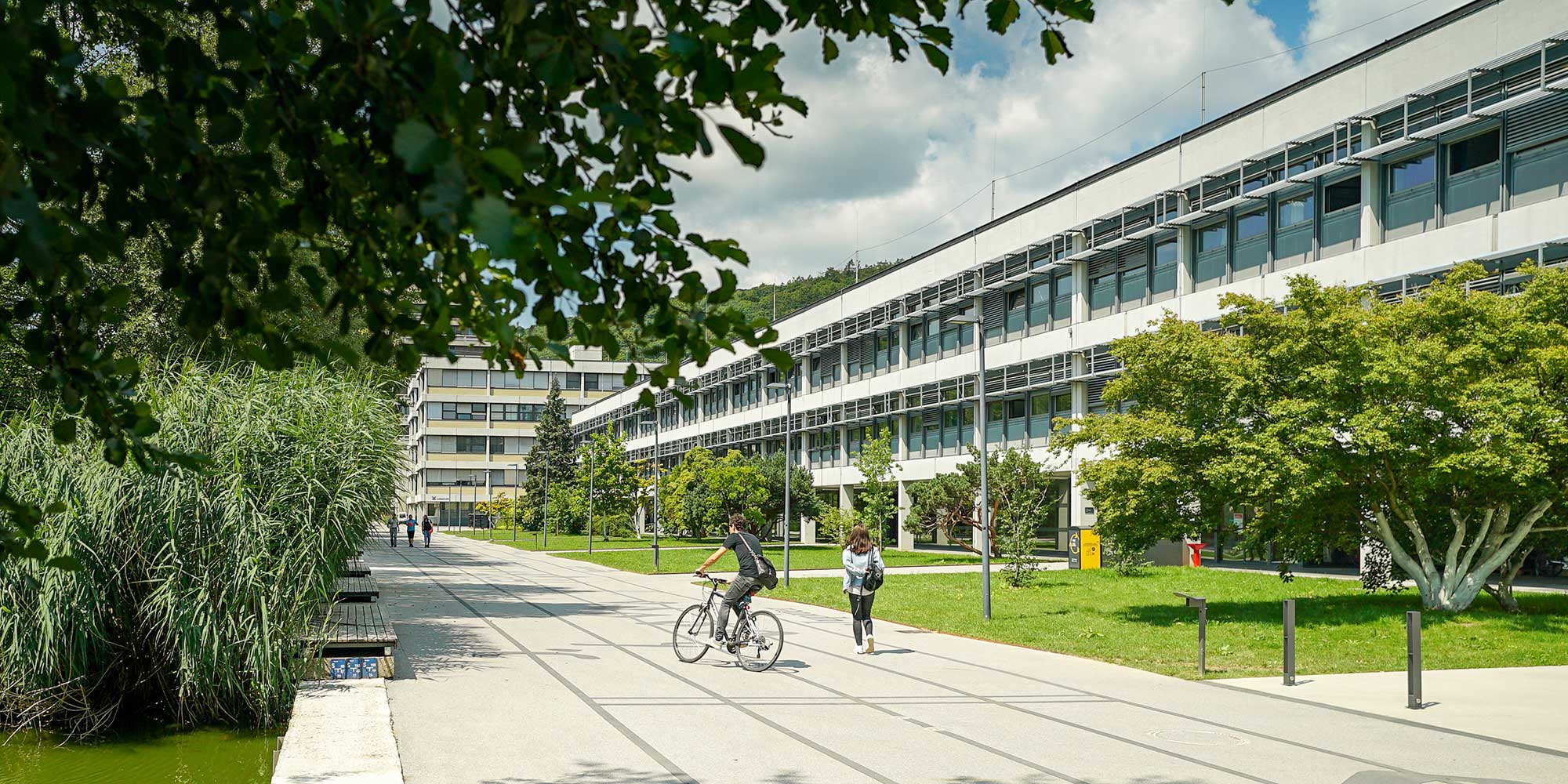
The fact that the pandemic has brought unprecedented attention and appreciation to scientific findings and recommendations on the one hand, and conspiracy theories and esotericism on the other, has prompted the Pädagogische Hochschule Oberösterreich (University of Education Upper Austria) and the Arbeiterkammer Oberösterreich (Upper Austria Chamber of Labor) to reflect at their symposium “Perspektiven Politischer Bildung” (Perspectives on Political Education) on how our education system can actively help to promote social thinking and action and strengthen a basic humanitarian attitude.
The conclusion of this “Education Day” and, at the same time, the official opening of Ars Electronica 2021 will be the opening of the new “Circus of Knowledge,” with which the JKU wants to help ensure that the magic of knowledge and the magic of cognition catches on as early as possible here in Linz, and that young people are encouraged to develop and pursue their own ideas for the future… The artistic highlight of this evening celebration at the interface of art and science is the new interpretation of Schubert’s “Winterreise” by Naked Luch frontman Oliver Welter and exceptional pianist Clara Frühstück, impressively accompanied by digital visualizations by Cori O’Lan…
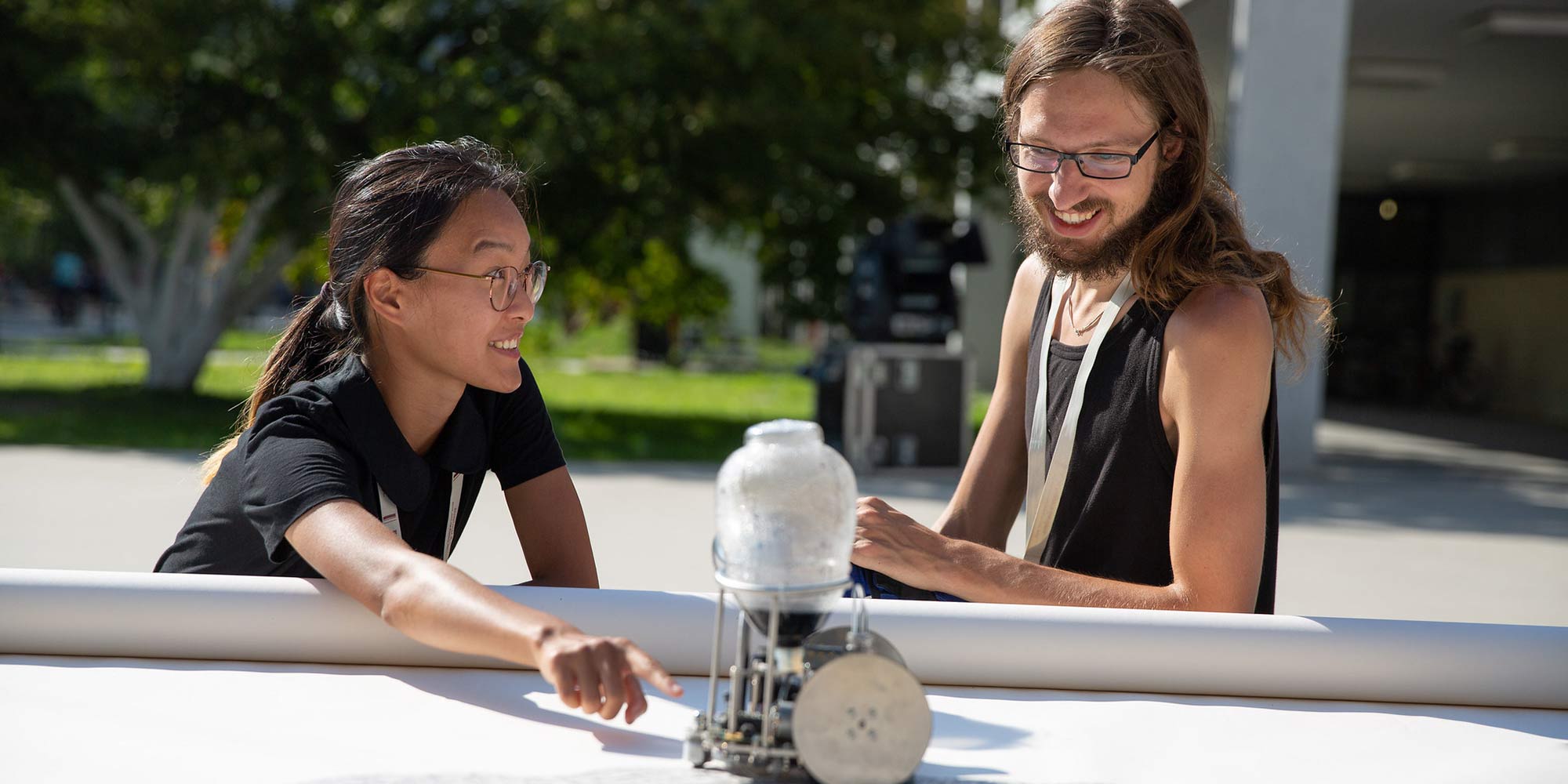
Thursday, 9.9.2021 – Day 2 of the festival is Innovation Day
Innovation has become a buzzword of our time. It is in demand everywhere and on all sides, is gladly promoted and even more gladly proclaimed. But by no means everything on which “innovation” is pinned today has (yet) earned this label. That’s precisely why Ars Electronica is declaring Day 2 of the festival “Innovation Day” and making a call for a contemporary understanding of innovation. Projects and initiatives will be presented and discussed that no longer promise only economic value creation but, above all, added value for society.
Perfect examples of what innovation means in the 21st century are presented by the European Commission’s STARTS Prize1. A large-scale exhibition, an all-day conference and a lavish workshop program will show how art can help to make scientific data tangible (Oceans in Transformation / Territorial Agency – John Palmesino and Ann-Sofi Rönnskog), how simple and ingenious circular economy can work in your own neighborhood (Remix el Barrio, Food Waste Biomaterial Makers / Anastasia Pistofidou, Marion Real and The Remixers at Fab Lab Barcelona, IaaC), how data can be stored in the DNA of plants to create a functional and CO2-negative IT infrastructure (Data Garden / Grow Your Own Cloud), and that organic waste in general has revolutionary potential as a sustainable energy source (The Living Light / Nova Innova).
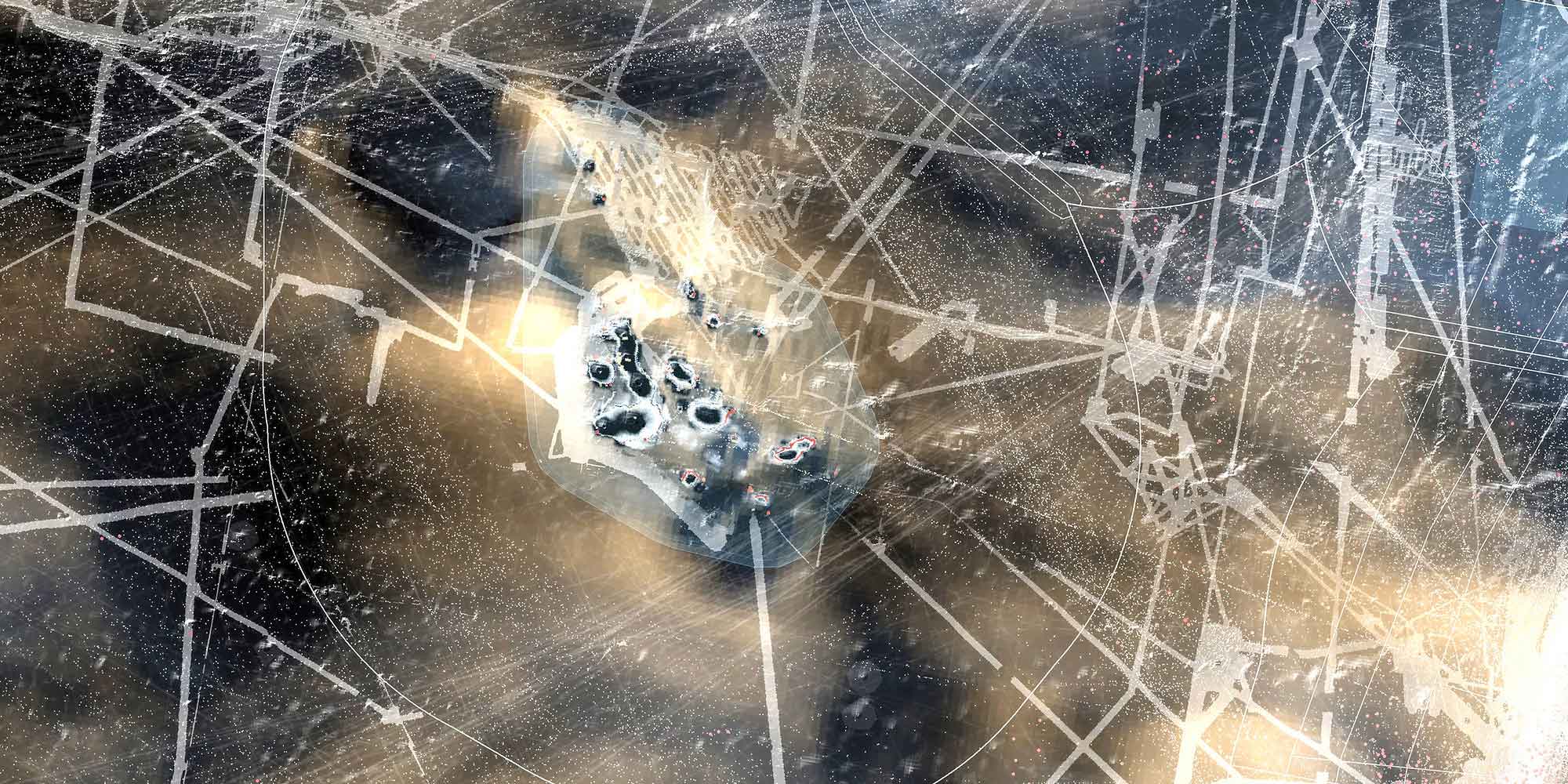
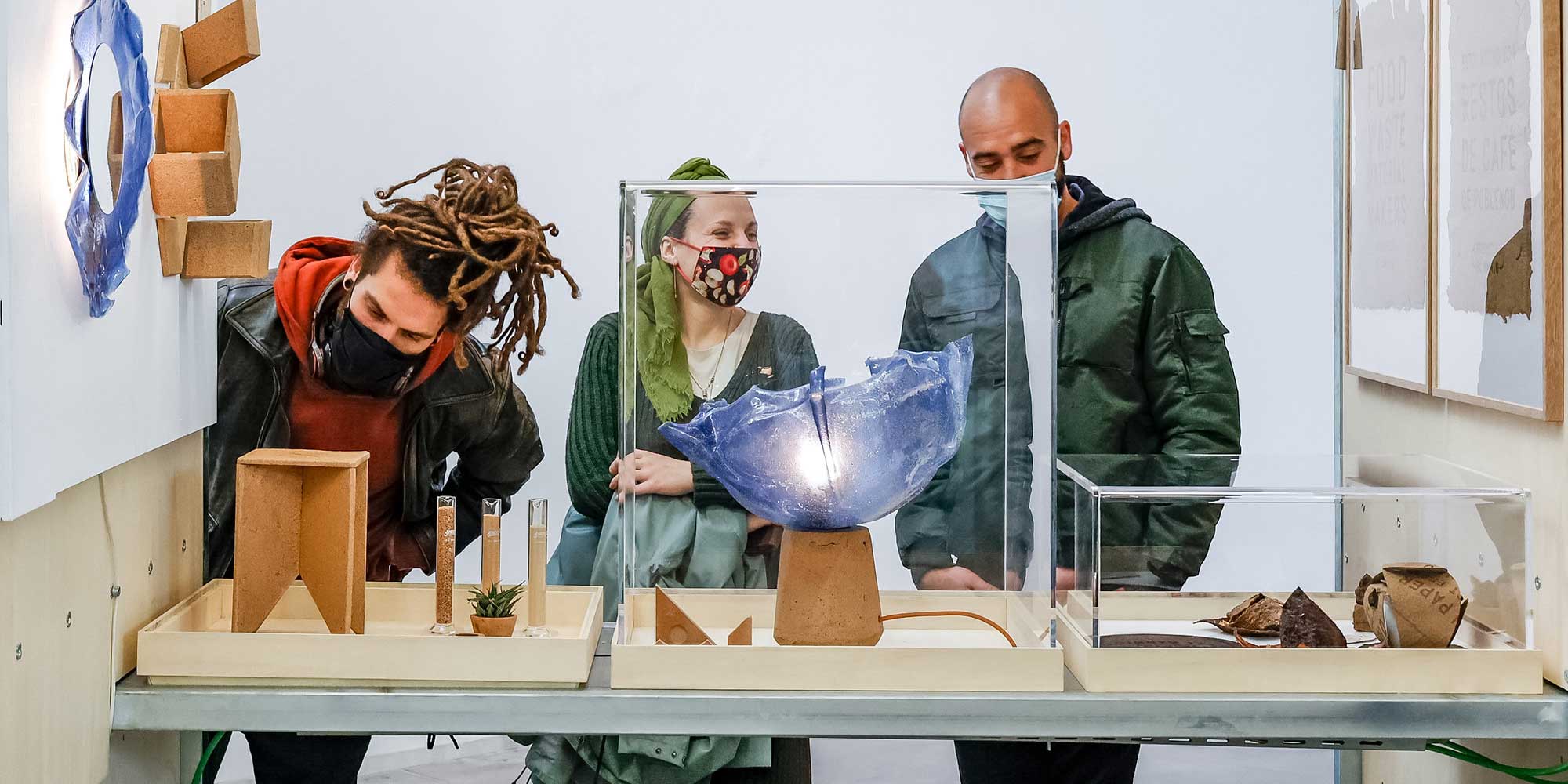
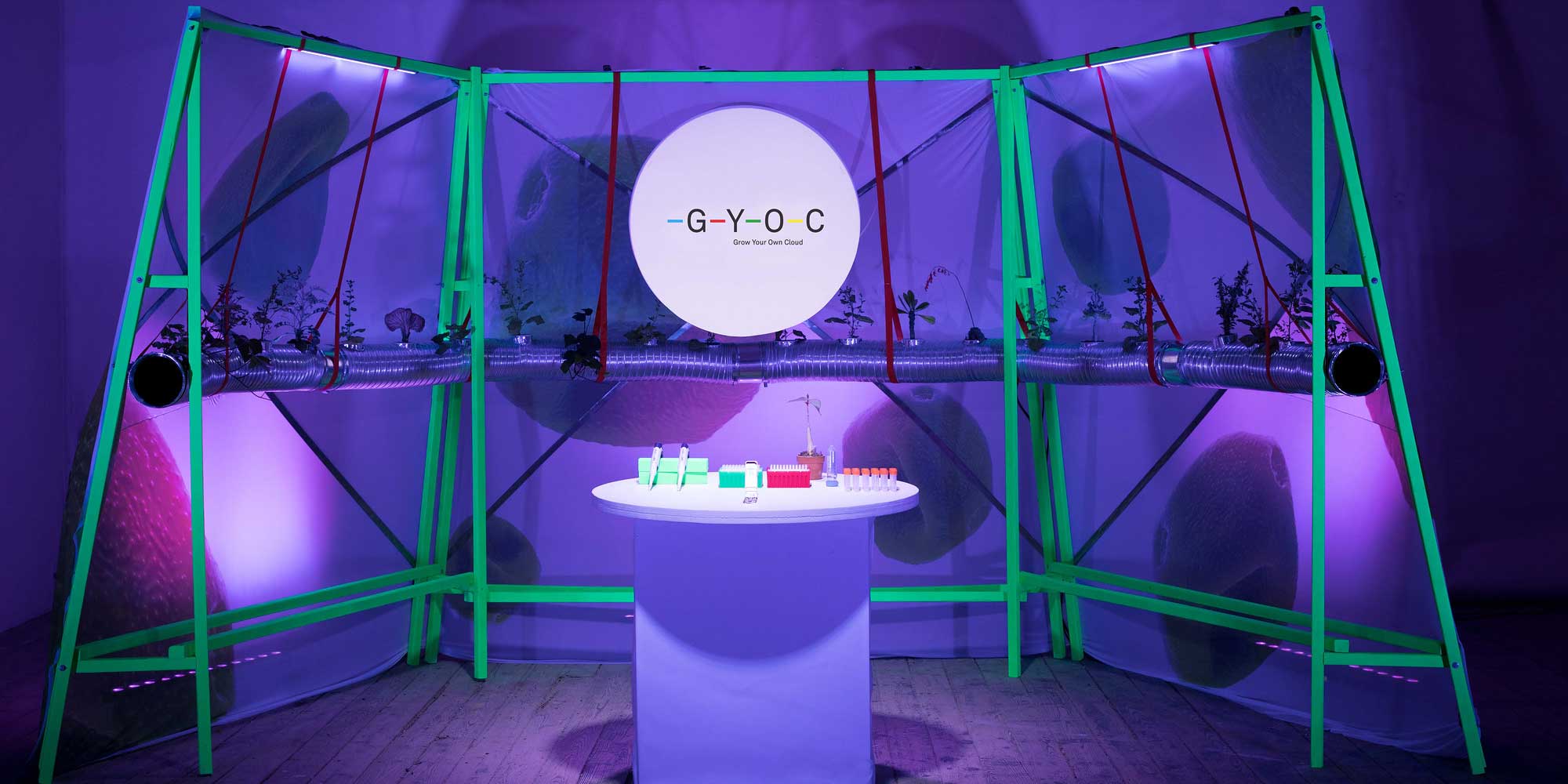
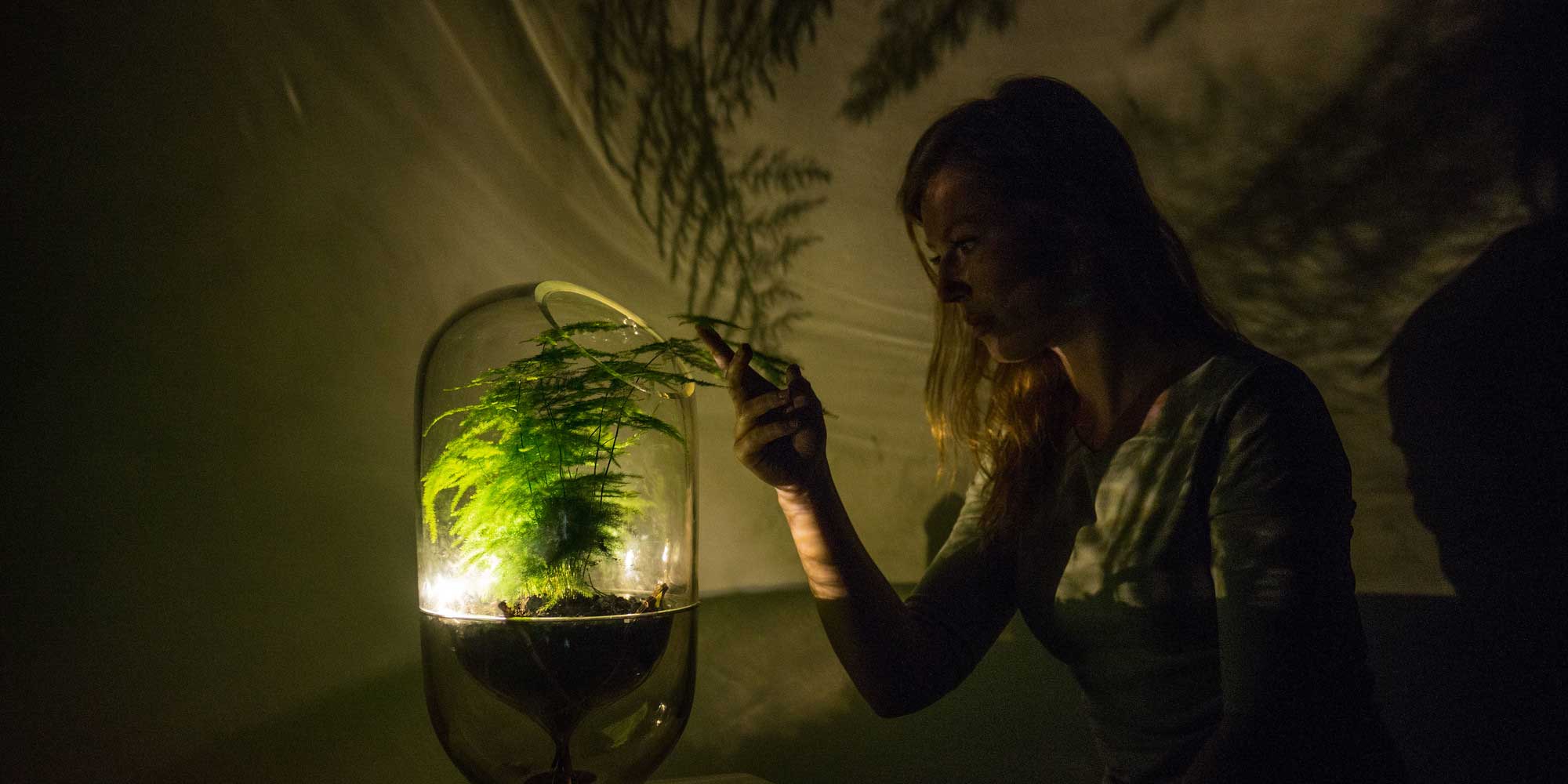
The fact that one is not able to solve problems with the same way of thinking by which they have originated, Albert Einstein has not only simply put into the room, but has impressively proved. In other words, walking along familiar paths just a little faster and more elegantly does not ultimately lead to the goal. What is needed are detours into rocky, impassable terrain that open up unexpected views and thus insights. This is precisely what Johannes Kepler University and the University of Applied Arts Vienna have been seeking since 2019 as part of their alliance “Innovation through Universitas,” in which technological and scientific achievements are virtually absorbed by art and become the source material for its aesthetic expression. By providing unusual perspectives, new insights and impetus for unexpected discoveries, the convergence between art and science thus becomes a source of creativity and innovation. How to imagine this is demonstrated by the Linz Institute of Technology In Kepler’s Gardens on the JKU campus, seven interactive and/or immersive installations dedicated to the significance of multiphase flows for water treatment, exhaust gas purification or vaccine production (“Do You Feel Stressed”) or the constitutional implications of the virtualization of court proceedings (“The Virtual Court. Reality.”), examine living chromogenic bacterial cultures and their potential for environmentally friendly methods of dyeing textiles (“Growing colors: Patterning with living pigments”) or, away from the hype surrounding AI, the possibilities and limits of machine learning (“AI Forest,” “Serum 13 – A VR Trust Game,” “Faces of AI”).
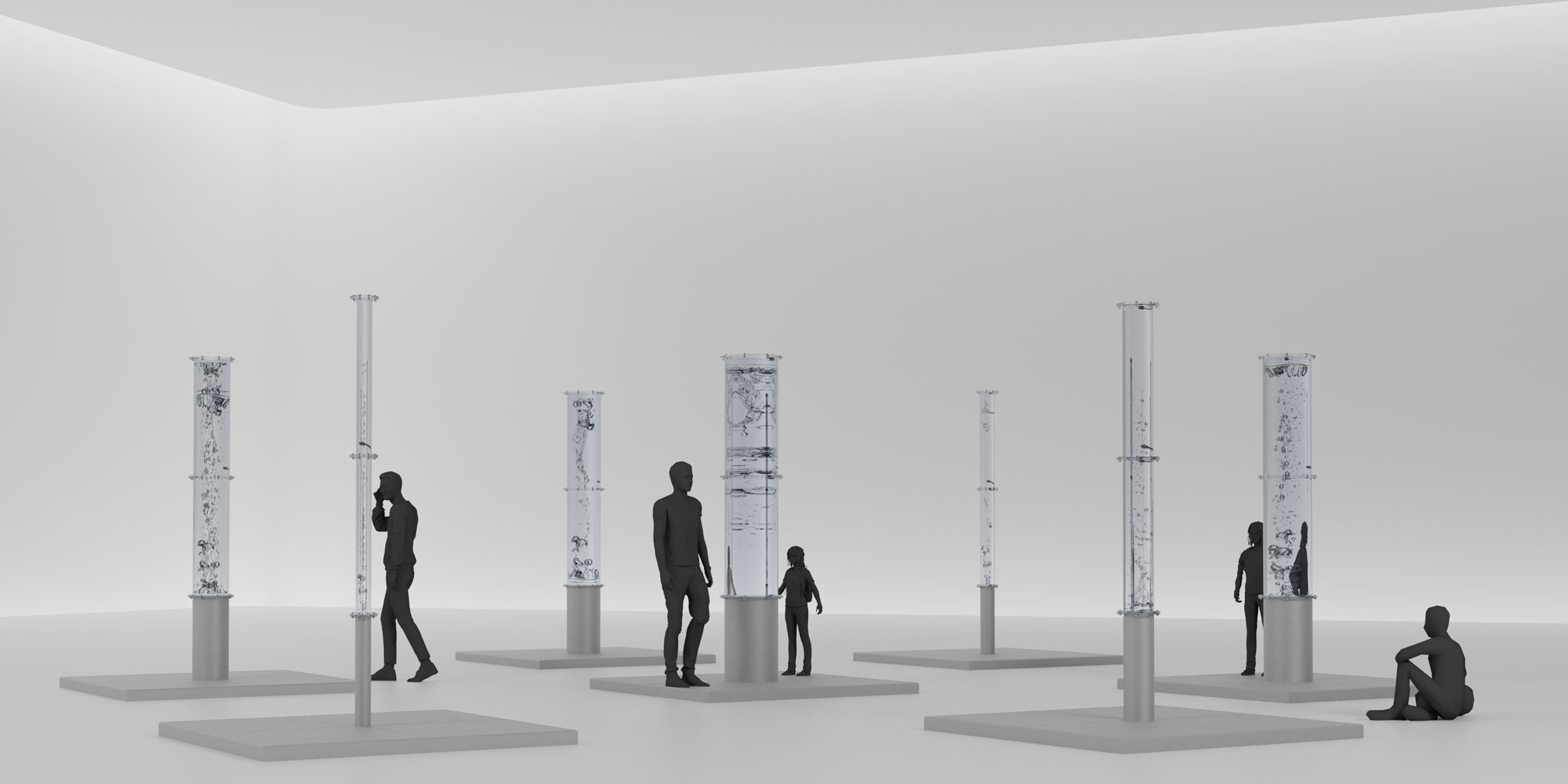
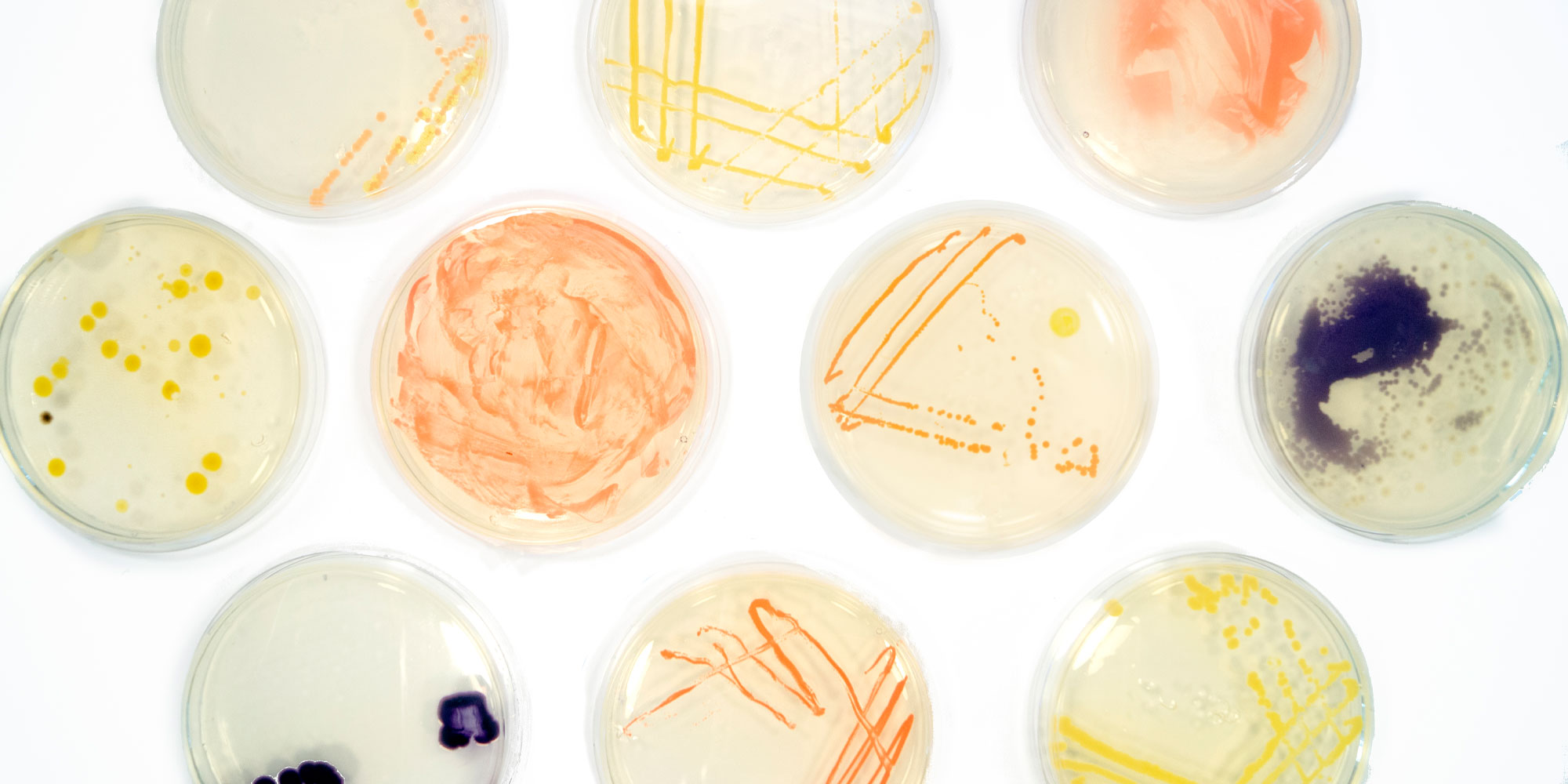
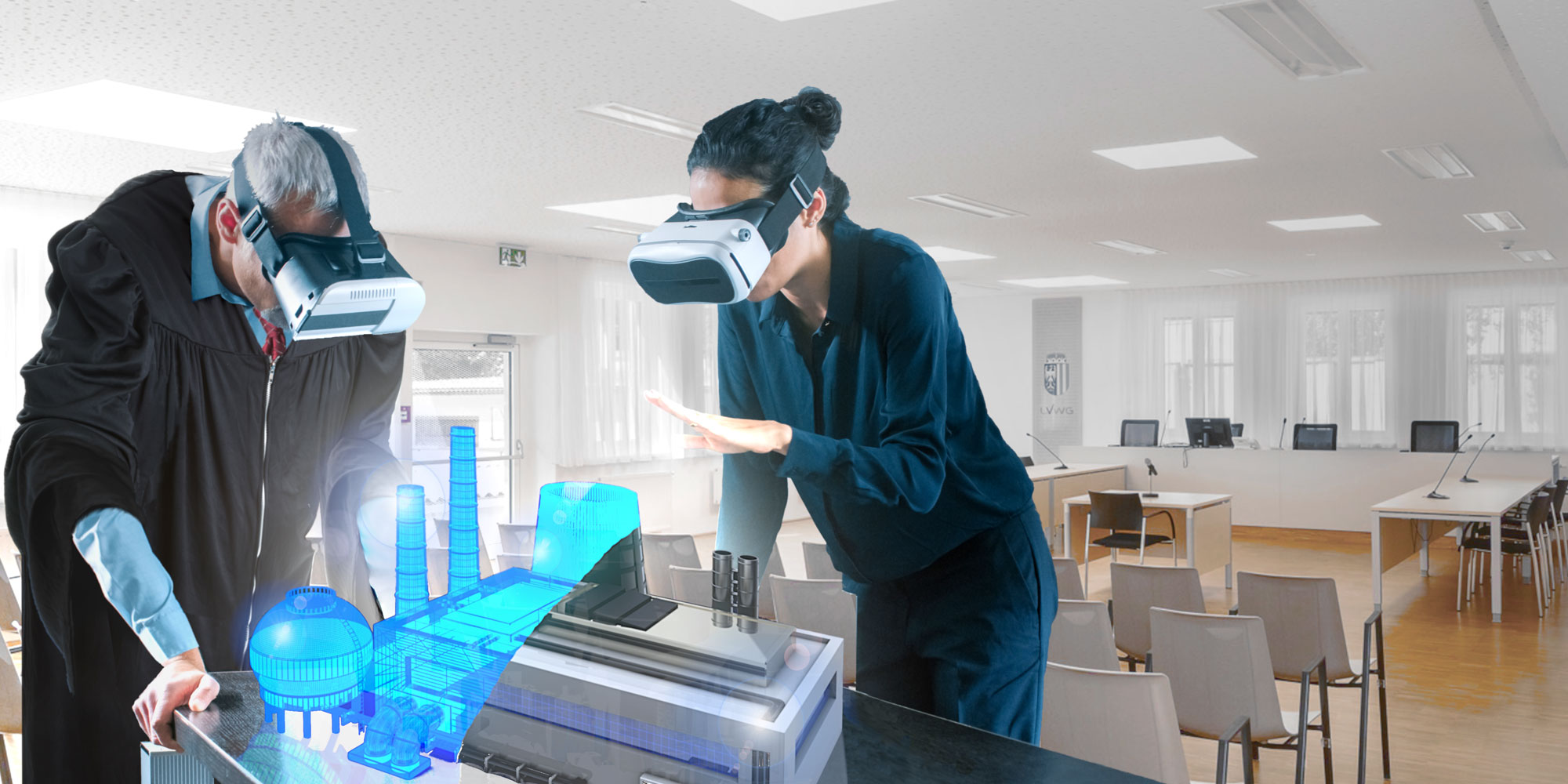
A remarkable 25 years after its founding, the Ars Electronica Futurelab clearly has a visionary say in innovation. The team of artists, developers, designers and scientists, which has been working across disciplines since 1996, is providing insight into its prototypical exploration of the future. An entire “Futurelab Day” will feature lectures, workshops, demos, inspirational tours, and performances that highlight one thing above all: the crucial role that artists play in a dynamic of innovation that does not focus on the next quarterly balance sheet, but rather on social sustainability.
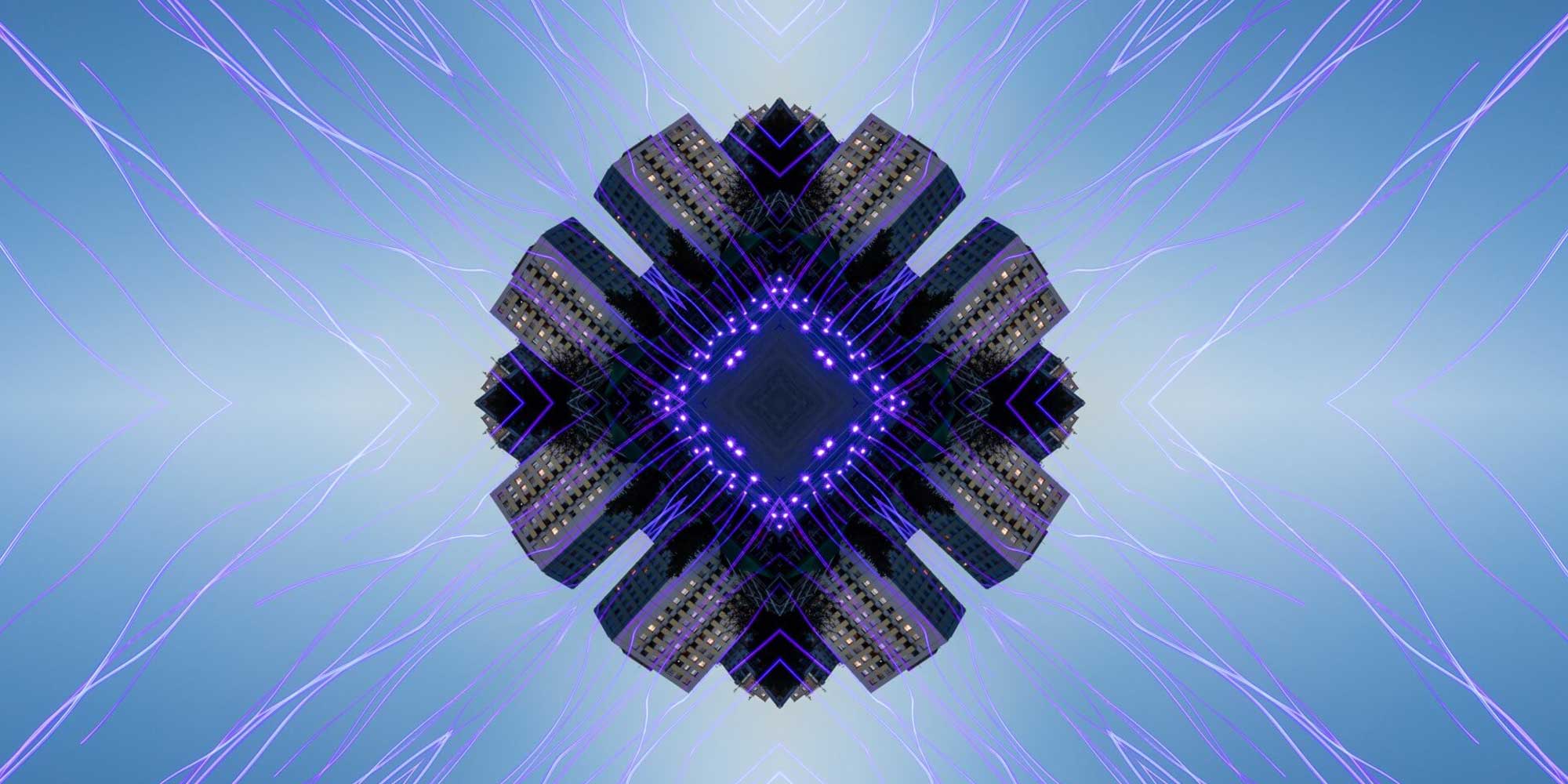
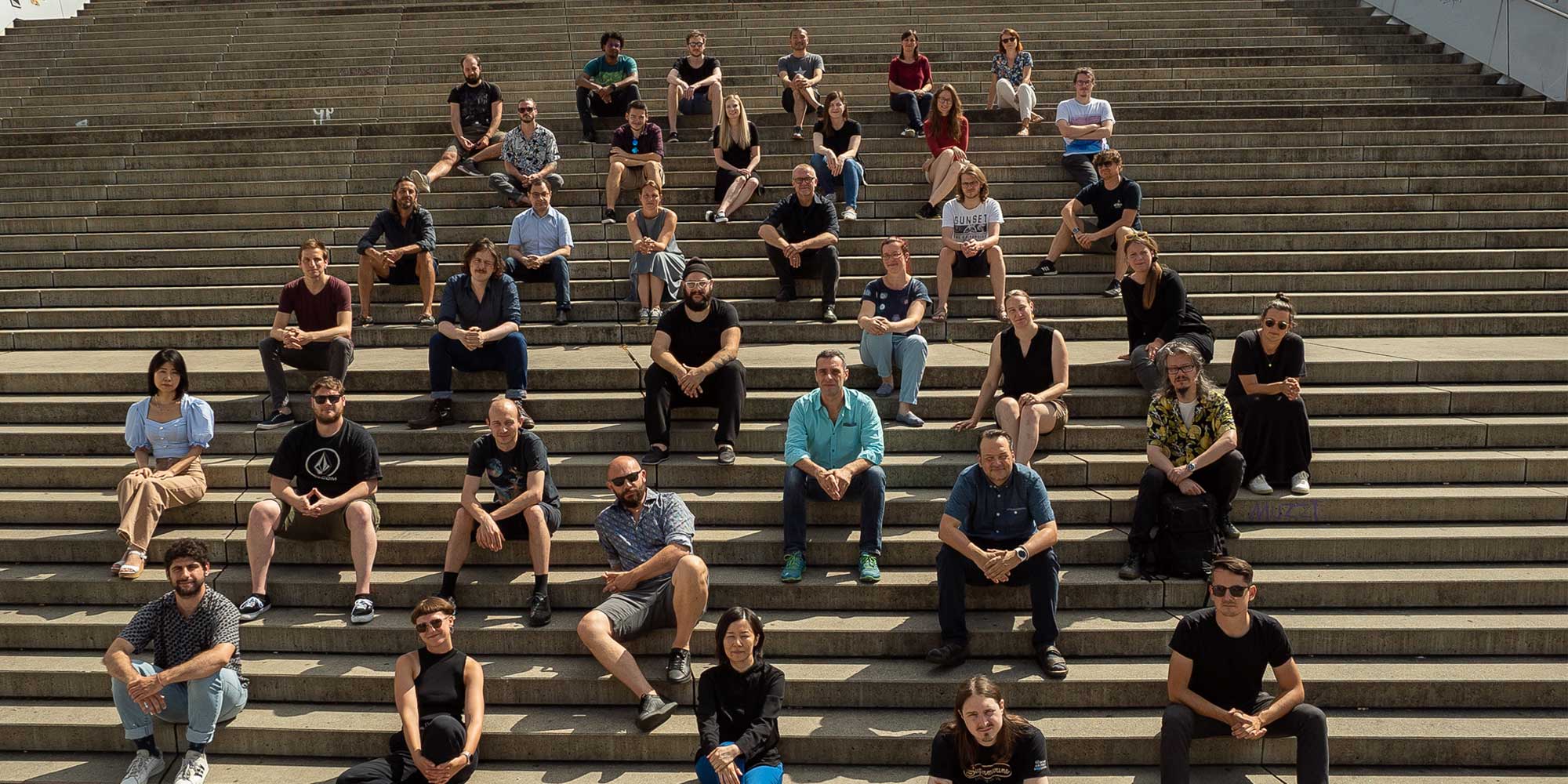
This was the first strike and the second… Part of the festival highlights will follow soon! Stay tuned!
1 The STARTS Prize has received funding from the European Union’s Horizon 2020 research and innovation programme under grant agreement No 956603.